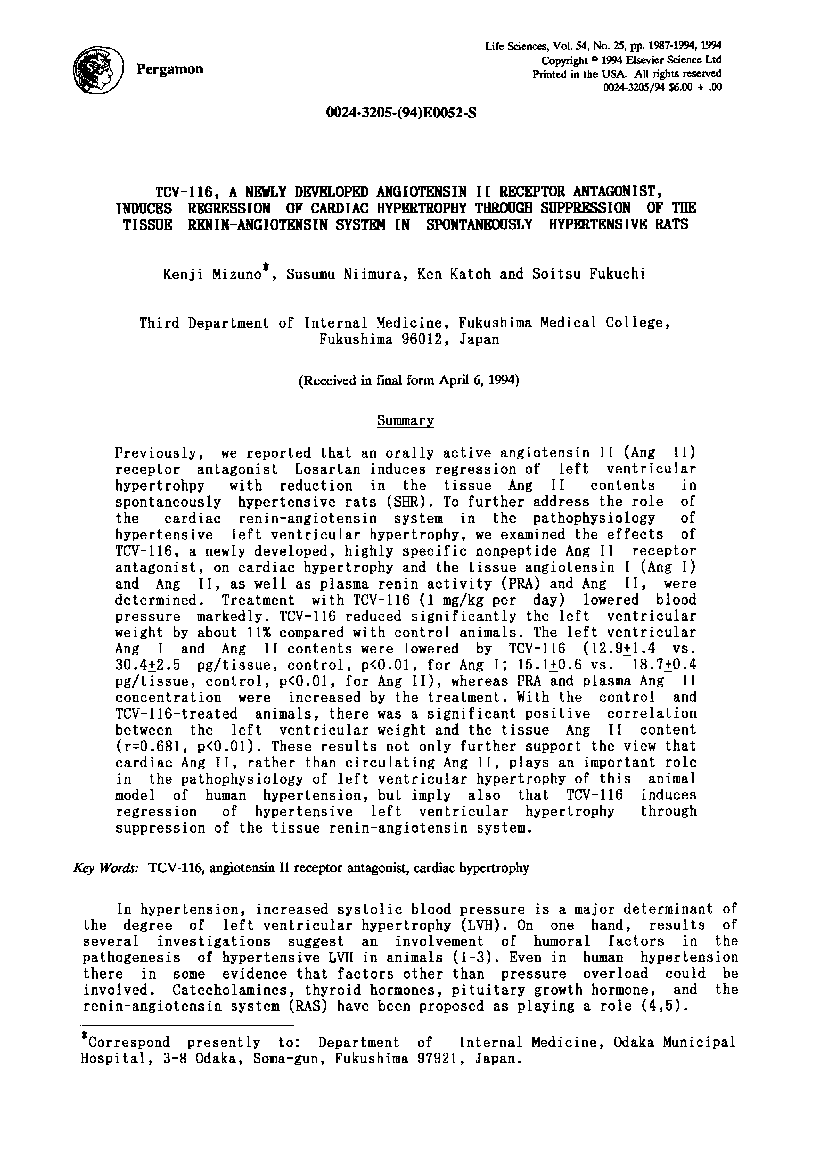| Article ID | Journal | Published Year | Pages | File Type |
|---|---|---|---|---|
| 2557895 | Life Sciences | 2017 | 8 Pages |
Abstract
Previously, we reported that an orally active angiotensin II (Ang II) receptor antagonist Losartan induces regression of left ventricular hypertrophy with reduction in the tissue Ang II contents in spontaneously hypertensive rats (SHR). To further address the role of the cardiac renin-angiotensin system in the pathophysiology of hypertensive left ventricular hypertrophy, we examined the effects of TCVâ116, a newly developed, highly specific nonpeptide Ang II receptor antagonist, on cardiac hypertrophy and the tissue angiotensin I (Ang I) and Ang II, as well as plasma renin activity (PRA) and Ang II, were determined. Treatment with TCV-116 (1 mg/kg per day) lowered blood pressure markedly. TCVâ116 reduced significantly the left ventricular weight by about 11% compared with control animals. The left ventricular Ang I and Ang II contents were lowered by TCVâ116 (12.9±1.4 vs. 30.4±2.5 pg/tissue, control, p<0.01, for Ang II 15.1±0.6 vs. 18.7±0.4 pg/tissue, control, p#0.01, for Ang II), whereas PRA and plasma Ang II concentration were increased by the treatment. With the control and TCVâ116-treated animals, there was a significant positive correlation between the left ventricular weight and the tissue Ang II content (r=0.681, p<0.01). These results not only further support the view that cardiac Ang II, rather than circulating Ang II, plays an important role in the pathophysiology of left ventricular hypertrophy of this animal model of human hypertension, but imply also that TCVâ116 induces regression of hypertensive left ventricular hypertrophy through suppression of the tissue renin-angiotensin system.
Related Topics
Health Sciences
Medicine and Dentistry
Cardiology and Cardiovascular Medicine
Authors
Kenji Mizuno, Susumu Niimura, Ken Katoh, Soitsu Fukuchi,
